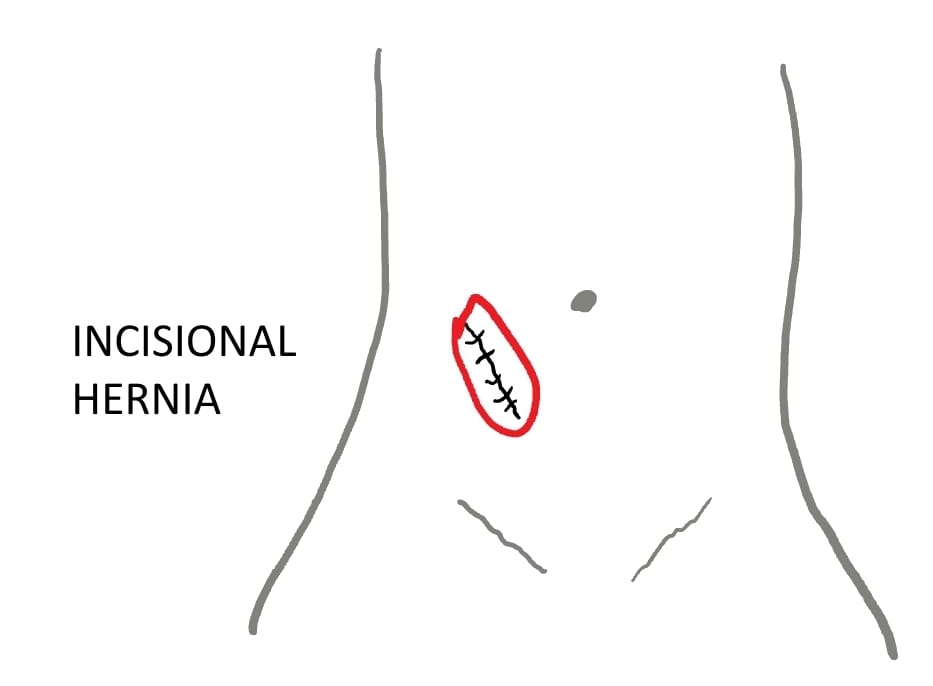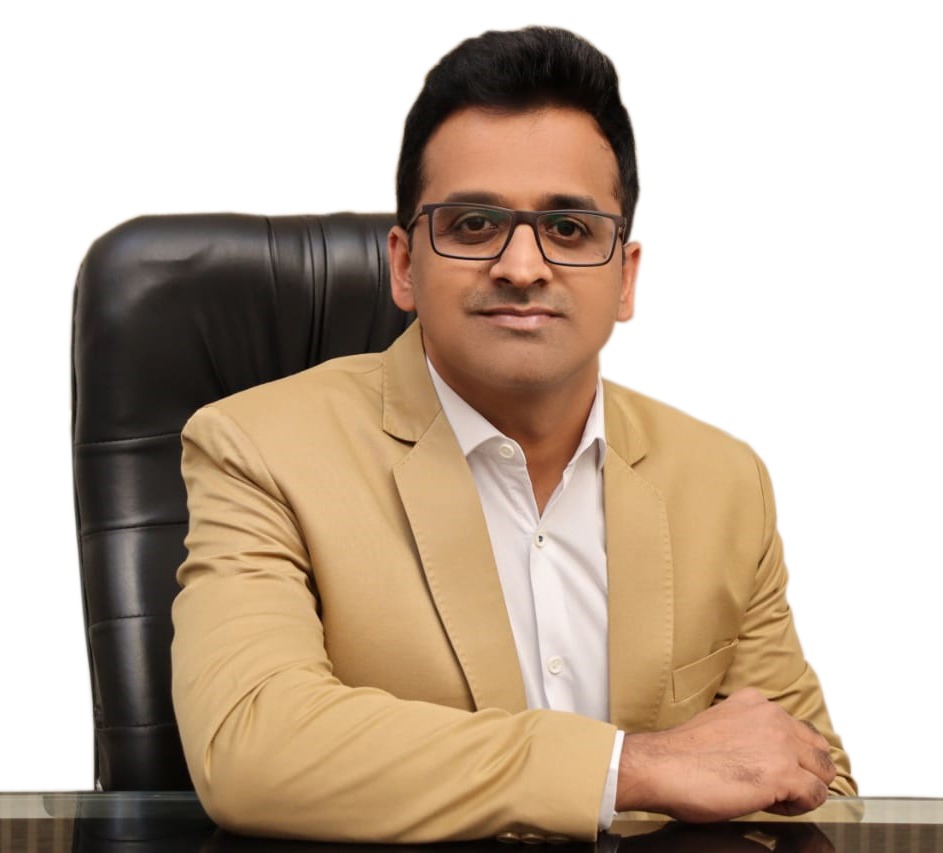If you’re dealing with an incisional hernia, a surgical gastroenterologist like Dr. Dinesh Reddy can provide the expert care you need. This condition occurs when a previous surgical incision site weakens, causing a bulge or protrusion in the abdomen.
A gastroenterologist in Hyderabad will assess your specific case and recommend a treatment plan tailored to your needs. In many cases, surgery is necessary to repair the hernia and prevent further complications. This procedure involves reinforcing the weakened abdominal wall with sutures or mesh to support the area.
A gastroenterologist will discuss the details of the surgery with you, addressing any concerns or questions you may have. They will also provide post-operative care instructions to ensure a smooth recovery. Rest assured, with the help of a skilled surgical gastroenterologist, you can address your incisional hernia and regain your quality of life. Don’t hesitate to seek their expertise for personalized and effective treatment.

An incisional hernia is a type of hernia that develops at or near the site of a previous surgical incision, such as those made during abdominal surgeries. It happens when the muscles and tissues of the abdominal wall weaken or separate, allowing the intestines or other organs to push through the opening, forming a visible bulge or lump. These hernias can vary in size and severity. Incisional hernias primarily occur due to surgical incisions that haven’t healed properly or where the abdominal muscles have weakened.
The common causes of incisional hernia are:
Early signs and symptoms of an incisional hernia include:
There are two options for the treatment of incisional hernia. They are:
This minimally invasive approach involves making several small incisions and using a camera and specialized tools to repair the hernia. It often results in less postoperative pain and a shorter recovery time.
In this procedure, the surgeon makes an incision near the hernia site, repositions the protruding tissue, and reinforces the abdominal wall with sutures or a synthetic mesh. This is the traditional method and may be preferred for larger or more complex hernias.
Recovery from hernia surgery can vary from person to person, but it generally involves taking it easy for a few weeks, avoiding heavy lifting, and following the surgeon’s postoperative instructions.
Laparoscopic surgery for incisional hernia presents multiple advantages over open surgery. They are:
Smaller incisions translate to reduced postoperative pain for patients undergoing laparoscopic surgery. In open surgery, a larger incision is often necessary, leading to more extensive tissue disruption and nerve trauma. Laparoscopic techniques, on the other hand, cause less tissue damage, resulting in milder discomfort and a quicker recovery.
Laparoscopic surgery usually offer a faster recovery period compared to open surgery. Patients undergoing minimally invasive procedures typically experience shorter hospital stays and can return to their normal activities sooner. The reduced postoperative pain and smaller incisions contribute to this accelerated recovery, allowing patients to regain their quality of life more swiftly.
With smaller incisions and reduced exposure to the external environment, laparoscopic surgery significantly lowers the risk of surgical site infections. Open surgery, due to the larger incision, may expose the internal tissues to a greater risk of contamination. Minimally invasive techniques offer a more controlled and sterile environment, minimizing the chances of infection.
Cosmetic concerns are also addressed with laparoscopic surgery, as it results in less scarring. The small incisions used in laparoscopic procedures are barely noticeable once healed, whereas open surgery often leaves a more prominent, larger scar. For many patients, this reduced scarring is a welcome advantage, especially when the incision is in a visible area.
An incisional hernia can lead to several serious complications. Two of the most concerning complications are intestinal obstruction and gangrene of the intestine.
Intestinal obstruction occurs when the herniated intestine becomes twisted or trapped, hindering the normal flow of contents within the digestive tract. This complication can lead to a range of distressing symptoms, including severe abdominal pain, bloating, vomiting, and the inability to pass gas or stool.
Treatment for intestinal obstruction often requires emergency surgery to untwist or release the trapped intestine and repair the hernia. It is crucial to seek timely medical treatment to prevent further complications.
Gangrene is a life-threatening condition that occurs when a section of the intestine dies due to a lack of blood supply. In the context of an incisional hernia, gangrene can develop when the herniated intestine becomes strangulated or twisted, preventing blood from reaching the affected area.
The treatment of gangrene involves surgical removal of the dead or necrotic intestine, as well as hernia repair. Antibiotics and other supportive measures may also be necessary.
Yes, there are different types of incisional hernias. These variations mainly depend on the location of the hernia and the layers of the abdominal wall involved. One common type is the “umbilical hernia,” which occurs near the navel. Another is the “epigastric hernia,” situated between the navel and the breastbone. “Spigelian hernias” develop along the side of the abdominal muscles.
Furthermore, some incisional hernias are termed “ventral hernias” and are more general in location. These distinctions help doctors decide the most suitable treatment approach. Regardless of the type, incisional hernias involve tissues protruding through a weakened area in the abdominal wall. It’s important to identify the specific type to tailor treatment effectively.
Several factors can increase the risk of developing an incisional hernia. When a person undergoes surgery, an incision is made in the abdominal wall. If this incision does not heal properly, it can weaken the abdominal muscles, making it more likely for a hernia to develop in the future.
Obesity is another significant factor. Excess weight places added pressure on the abdominal area, which can strain the incision site and lead to a hernia. Additionally, chronic coughing, heavy lifting, or activities that strain the abdominal muscles can also increase the risk of an incisional hernia.
It’s essential to follow your surgeon’s post-operative instructions carefully and maintain a healthy lifestyle to reduce these risks.
Preventing incisional hernias is a primary concern, but it’s important to understand that not all hernias can be entirely prevented.
Firstly, maintaining a healthy body weight is essential. Excess weight puts strain on the abdominal area, increasing the likelihood of hernias. Secondly, during surgery, ensuring that the incision is carefully closed and strengthened with appropriate techniques and materials can make a difference. It’s crucial to follow postoperative instructions diligently, which may include avoiding heavy lifting and allowing adequate time for healing.
A well-balanced diet rich in fiber can also help prevent constipation, which can strain the abdominal muscles. And if you’re planning surgery, discussing the risk of hernia with your surgeon and asking about the use of mesh reinforcement may be beneficial. While we can’t guarantee prevention, these measures can certainly reduce the risk of incisional hernias.
It’s essential to understand that an incisional hernia won’t go away on its own. Once it develops, it typically requires medical attention and intervention. An incisional hernia occurs when tissue or organs protrude through a weakened abdominal wall, often at the site of a previous surgical incision.
The natural healing process of your body doesn’t usually correct this condition. In fact, it may worsen over time due to strain or increased pressure on the abdominal wall. Therefore, if you suspect you have an incisional hernia or experience any related symptoms, it’s important to consult a healthcare professional for a proper evaluation and potential treatment options.
Untreated incisional hernias can lead to several complications. When the abdominal tissues protrude through the weakened area, they can become trapped, causing a condition called strangulation. This can cut off blood flow to the trapped tissues, resulting in severe pain, tissue damage, and even tissue death. If this occurs, it’s a medical emergency that requires immediate surgery.
Additionally, untreated incisional hernias can cause chronic discomfort, restrict your physical activities, and affect your quality of life. They may continue to grow larger over time, making them more challenging to repair. In some cases, the hernia can lead to digestive problems, such as bowel obstruction or issues with digestion. Therefore, it’s essential to consult with a healthcare professional to assess and address incisional hernias promptly to avoid these potential complications.

Dr. Dinesh Reddy is a skilled surgical gastroenterologist who specializes in incisional hernia treatment in Hyderabad. Incisional hernias occur when a part of the intestine or fatty tissue protrudes through a surgical incision site. These can be painful and disruptive to daily life.
Dr. Dinesh Reddy’s approach to treating incisional hernias is comprehensive. He begins with a thorough examination to understand the specific condition and its impact on the patient. Depending on the size and severity of the hernia, he offers both non-surgical and surgical solutions. Non-surgical options may involve lifestyle changes and hernia support belts. For more complex cases, surgical repair is often the best choice.
With a focus on patient comfort and safety, Dr. Dinesh Reddy and his team provide excellent post-operative care, guiding patients toward a smooth recovery. If you’re dealing with an incisional hernia, rest assured that Dr. Dinesh’s expertise will help you regain your health and well-being.

Our goal is to deliver quality of care in a courteous, respectful, and compassionate manner. We hope you will allow us to care for you and strive to be the first and best choice for your family healthcare.
© 2023 Dr.DineshReddy | Designed by Ramit Solutions